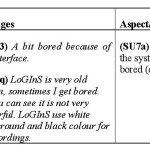Akinwale Adedayo - ‘Affordable Housing Policy, Key to FCT Vision 20: 2020′
www.thisdailylive.com – November 8, 2012. The vision of Abuja to be among the top 20 cities in the world by the year 20:2020, will not be realised without a dynamic policy of decent affordable housing for the residents of FCT.
The assertion was made by the Minister of State, Federal Capital Territory (FCT), Mrs. Olajumoke Akinjide, at the recent 3rd Annual National Housing Seminar in Abuja. According to her, “in the FCT, just like many other cities in Nigeria and the world, provision of housing has continued to pose enormous challenges due to the high increase in population”.
She added that, the increase in number of people that come into the FCT on daily basis has further put pressure not only on the housing facility, but also on other infrastructure and service delivery. Akinjide expressed optimism that the seminar with a theme, ‘Social Housing: the Business Opportunities Beyond Shelter’ would bring up ideas on how a workable social Housing Policy for FCT residents can be evolved.
Read more: A. Adedayo Affordable Housing Policy Key to FCT Vision
Australia – Collaboration is the Key to Affordable Housing
probonoaustralia.com – November 8, 2012. The only way Australia will overcome the diverse and complex problems around affordable housing issues is if all sectors of the industry come together with a collaborative approach, a national Forum has been told. Westpac’s second Annual Social and Affordable Housing Forum brought together over 100 delegates from government, industry regulators, Not for Profit organisations, urban planners, builders, financiers and advisors in a bid to identify and develop responses to the challenges facing the social housing sector.
The Forum was told that the social and affordability housing sector is already well overstretched.
According to Homelessness Australia, each day nearly 1 in every 200 Australians is homeless, without safe, secure or affordable housing. Last year, 220,000 Australians received support from specialist homelessness services.
Read more: Australia -Collaboration is the Key to Affordable Housing
Paula Alvarado – Alternative Social Housing: Prefab, Add-On Homes to Densify Suburbs
www.treehugger.com – November 7, 2012 – As masses of people get out of poverty in developing countries, they are also getting out of slums (sometimes literally, sometimes metaphorically). But as social housing is built in vacant lots in the outskirts of urban centers, it presents all the problems of suburban sprawl.
Argentine architects Adamo Faiden have created a concept which adds an interesting, controversial spin to the conversation. What if, instead of building new houses on virgin ground, we added prefabricated units on top of existing homes?
Read more: Paula Alvarado – Alternative Social Housing
The Broken Circle: The Prevalence of Fear in Low-Cost Housing in South Africa
The South African township is characterised by low-cost houses as well as the so-called ‘shack’ that consists of corrugated iron, plastic and cardboard. In several research projects high levels of fear have been encountered among residents of these low-cost houses, in both rural and urban contexts (Holm, Murray and Pauw, 2005).
The high levels of fear among residents of low-cost housing present us with a combination of problems of a technical, socio-cultural and religious nature. Modern science, as it has developed since the time of the European Renaissance, has not been very successful in addressing this type of problem. Modern science has been remarkably successful in unlocking the secrets of nature and in utilising the potentialities of nature, through a strong emphasis on the superiority of reason. But this emphasis has had a reverse side: scientists tended to dismiss all the non-rational, yet vital elements of human life and reality, such as the destiny of humanity, human freedom and spontaneity (Prigogine and Stengers, 1984: 34-5).
Thierry Paulais – Financing Africa’s Cities: The Imperative of Local Investment
 worldbank.org – This volume addresses the issues of financing urban growth of the African continent — which has the highest urban growth rate on the planet — in the next decades. Considerable investment will be needed to sustain this level of growth and to clear up accumulated backlogs. At the same time, decentralization has resulted in increased responsibilities for local government; but in most cases, institutional reforms were carried out without the transfer of a sufficient level of resources, and local capacities in governance and project management are weak. Read more
worldbank.org – This volume addresses the issues of financing urban growth of the African continent — which has the highest urban growth rate on the planet — in the next decades. Considerable investment will be needed to sustain this level of growth and to clear up accumulated backlogs. At the same time, decentralization has resulted in increased responsibilities for local government; but in most cases, institutional reforms were carried out without the transfer of a sufficient level of resources, and local capacities in governance and project management are weak. Read more
- Page 3 of 3
- previous page
- 1
- 2
- 3



